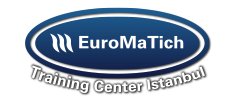Overview:
Introduction:
HR Analytics is the use of people-data in analytical processes to drive organizational success by evaluating and designing better systems and solving business problems. Critically, it enables evidence-based decisions to be made using data collected and synthesized from a variety of sources both within and outside the organization. HR analytics uses people-data, collected by HR systems and business information systems within the context of the operating environment. At its core, HR analytics enables HR professionals and the organization to gain insights into the performance of the workforce so that the investment in the ‘Human Capital’ brings improved performance, higher productivity and guarantees the organization is ahead of the competition.
HR analytics enables HR and the major stakeholders to measure and report on workforce performance, well-being, productivity, innovation, and alignment. Additionally, analytics allows HR teams to demonstrate the impact that HR policies and processes have on the workforce and organizational performance and used to demonstrate ROI and SROI investment for HR activity. Line managers are increasingly interested in how to manage their teams more effectively; HR concepts and analytics demonstrate how to evaluate and improve people and business performance.
Course Objectives:
At the end of this course the participants will be able to:
- Understand the fundamental changes in the operating environment
- Conduct analysis of data for predictive and corrective planning
- Define the principles of organizational change
- Use a range of HR assessment tools to improve organizational performance
- Develop HR metrics, apply them and align them with organizational strategy
Targeted Audience:
- Those charged with implementing HR Analytics
- HR Professionals interested in using data to determine better outcomes
- Data Analysts interested in maximizing the return on human capital investments
- Line Managers wishing to understand how data can improve human performance
- Any HR Professional wishing to broaden their skills and adaptability
- Those new to HR and who wish to specialize in the growing field of analytics
Course Outlines:
Unit 1: Overview of HR Data and Analytics:
- Seminar Overview – Introduction to Analytics
- The Rationale for the Evidence-Based Approach
- Understanding Statistics – Probability and Significance
- The Nine Steps of the Analytics Process
- Aims of an Analytics Strategy
- State-of-the-Art Analytics: Stages on the Journey
Unit 2: The Concept of Human Capital:
- Viewing Employees as Assets, not Costs
- Strategies for Investing in Human Capital Metrics
- Measuring the Impact of HR Strategy and Investments
- Measuring ROI
- Embedding Human Capital Analytics in the Organisation
- Assessing the Organisation’s Readiness for HR Analytics
Unit 3: Data Collection and Analysis:
- Understanding the Cultural Context
- What information can be analyzed?
- Methods of Data Capture
- Employee Self-assessment and Self-report Measures
- Electronic Workforce Surveillance & Analytics
- Data Security
Unit 4: HR Metrics and Analytics in Action:
- Recruitment & Selection
- Learning & Development
- Attendance, Absence & Well-being
- Manpower Planning
- Talent Management & Succession Planning
- HR Effectiveness and Efficiency
Unit 5: Metrics for Employee Performance and Productivity:
- Performance Management
- Employee Motivation
- Employee Engagement
- The Psychological Contract
- Empowerment and Accountability
- Conclusion and Action Planning


